INTRO
I am your host, Gaurav Garg, and we welcome our esteemed viewers to another enlightening episode of the “Believe in Future Amazing Mentors” series.
Today, we are privileged to have in our midst a true visionary, advocate for change, and compassionate leader, Abhishek Sinha. Celebrated for his distinguished tenure in the Indian Revenue Service and his groundbreaking role as co-founder and CEO of Good Dot, Abhishek’s journey is a testament to the power of passion, perseverance, and purpose.
A graduate in chemical engineering from Pune University, his early aspirations led him to pursue a career in public service, culminating in his successful entry into the Indian Revenue Service in 2010. For six years, Abhishek served diligently, embracing every opportunity to contribute to national welfare.
However, it wasn’t until 2016 that Abhishek made the courageous decision to pivot from his established career path and embark on a journey of entrepreneurship and advocacy. His decision to leave behind the comforts of a stable job and venture into uncharted territory speaks volumes about his conviction and unwavering commitment to his values.
Today, Good Dot stands as a testament to Abhishek’s commitment to his values and relentless pursuit of a compassionate future. With a diverse range of plant-based offerings, from mutton keema to eggless bhajji, Good Dot has not only revolutionized the culinary landscape but has also garnered international recognition for its impact, being ranked among the top in the Food Tech 500 list by a London-based organization for its contributions to achieving UN Sustainable Development Goals.
Good Dot’s journey is a testament to Abhishek’s visionary leadership and unwavering dedication to creating positive change. It’s a pleasure to welcome Mr. Abhishek Sinha to our show. Welcome, sir.
Can you recall a specific moment or experience from your student’s day that signifies impact, your personal or academic trajectory?
I can say that I wasn’t really focused during my student days. I was a good athlete and a decent student, but I didn’t have a clear life goal. Consequently, my career goals were also unclear. However, one constant was my love for animals. I would rescue and feed them, which was incredibly satisfying for me personally.
The decisive factor in my career came during my engineering days at university, particularly in my final year, when I came across a research paper from the Netherlands on tissue-culture-based meat. As a meat eater who was struggling to give up meat while helping animals, this was a great moment of enlightenment for me. I felt that, if something like this were to become available, I would be fortunate as a consumer to have access to it. I never thought I would enter this space because there was no plan for it, but that moment in 2003 during my final year of engineering was pivotal.
How did growing up in Patna, Bihar contributes to your values and aspirations?
My father was a central government servant, and we traveled all across India. My early schooling, up until second grade, was in Patna, after which I moved around the country with my father and the entire family. Consequently, I attended schools in cities like Bhubaneswar and Kolkata. I completed my 10th grade in Hyderabad and my 12th grade in Chennai, before pursuing engineering in Pune. Although we traveled extensively, Patna, being my home ground, laid the basic cultural and social foundations for me through the influences of Bihar and my family. In that part of the country, civil services is a highly respected profession, and many young students aspire to become civil servants. Given that we had civil servants in our family, this career path was always at the back of my mind as an attractive option. This influence was instrumental in shaping my initial career choice.
What differences did you feel in education system, as you have told that you have taken education from different parts of the country? What are major differences? Do you feel?
I feel the education system is consistent across India, especially at the school level. You can receive high-quality education in cities like Patna, Chennai, or Hyderabad—there isn’t much difference. I would say this holds true even in smaller cities across India; the system is very well-grounded. What I found a bit distinct, however, was my experience in Kolkata. Moving from Patna to Kolkata was an eye-opener in terms of sports and a broader awareness of global affairs. It was a fascinating time in my life, where, as a second-grader from Patna, I was suddenly immersed in a football-loving crowd that discussed global politics and sports, including teams from Argentina and Brazil. These were completely unknown to me before, and it was incredibly fascinating—an entire new world. The cultural differences in Bengal, especially in Kolkata, were particularly formative in my early days because they opened me up to a larger perspective, from studies and beyond. Academically, however, I believe there is no difference, whether it’s Kolkata, Patna, or any other city.
The veteran role models or individuals in your childhood who inspired you to pursue your dreams?
Looking back, I didn’t have a single person whom I could call my idol, but there were many inspiring forces. My mother introduced me to small booklets from Gita Press that discussed morals and other constructs. These were very simple, small books that instilled moral values. We had moral science classes, right? But these lessons were more personal. Reading them always made me feel good. As I grew older, the words of Swami Vivekananda, conveyed through his books, resonated with me strongly. He was a profound spiritual leader and had a significant influence on my early youth.
So what are some of your favorite activities or hobbies as a child, and do you see any connection between those interests and your current endeavors?
As I mentioned earlier, I wasn’t very studious. I only started studying seriously when I realized there were no more classes left and I had to enter the job market. That was my wake-up call; I knew then that I had to do something with my life. That being said, I do believe that participating in sports was incredibly beneficial. I was very active in various sports, which taught me a lot—like how to be competitive, how to handle losses, and how to recognize that, despite your best efforts, there is always someone who might perform better, indicating that there is always room for improvement. That was a very crucial realization for me.
Secondly, feeding animals—whether it was birds, squirrels, dogs, cows, or bulls—connected me to something beyond human dimensions. These two activities from my childhood, sports and feeding animals, had a significant impact on me.
But did you encounter any challenges or obstacles during your formative years that ultimately influenced your approach to overcoming adversity later in life?
I can say that we all go through various challenges, and the most growth occurs during our failures. The negative experiences—when the world doesn’t turn out as we assume it will—teach us the most. There are many instances I could mention, such as failures on the sports field, not doing well in studies, or causing mischief that resulted in someone getting hurt, followed by reprimands from my parents. These experiences taught me that while it’s important to enjoy freedom, it’s equally important to be mindful of others’ feelings and rights. I can’t pinpoint one specific event, but I can say with certainty that I’ve only grown in life when I’ve faced failures and adversity.
So can you describe any college experience and how it shaped your personal and professional development?
College was the time when I truly woke up from my slumber. While others were preparing for exams like the GRE, CAT, and civil services, or going clubbing, I found myself drawn to spiritual places like ISKCON, trying to understand the meaning of life. I was eager to climb the ladder of success, but I first wanted to know where that ladder would lean. I needed a sense of direction.
Ironically, my college years were the worst of my life because I was going through a lot of depression. There were so many questions—some even abstract and spiritual—and even today, I don’t have exact answers for many of them. It was like what we call in Hindi “Samudra Manthan,” or the churning of the ocean. This churning in my psyche and soul brought forth many things: poison emerged, but so did good and bad things. This period made me decide not to pursue what the world expected of me—the conventional markers of success like money and power. Instead, I aspired to find the meaning of my life and connect to a larger construct, not just as an individual but through my work, my prayers, and my efforts.
I didn’t know how to go about it, so looking back, I can say that my college period was both the worst and the best time of my life.
When you say best times of war, are there any mischief activities you were part of in your college life?
No, I wasn’t really involved in much mischief, except for some fights on the football field. I was quite aggressive during games, which once led to a fistfight between the engineering and medical students. That’s the only real mischief I remember from my college days.
Apart from that, I was a very simple guy, mostly in my own world. I think a lot of my batchmates from that time would agree that I wasn’t much into mischief, but rather struggling with life. I think he didn’t have much time for mischief; it was a more serious period. It was about time to get real, so my focus was more internal.
So can you describe the early days of your career after joining Indian Revenue Services and what motivated you to pursue this path initially?
Before I joined the Indian Revenue Service, my brother and I had a discussion. We are two brothers and one sister, and we discussed that, as I was very open-minded, I could even pursue an MA in the US. My final understanding was based on either pursuing tissue culture-based research, which could help animals—a direction inspired by a chemical engineering paper I had read from the Netherlands—or letting my brother go abroad since our parents were settled in India, and one of us should stay back. When my brother decided he wanted to pursue his PhD and MS abroad, I realized I needed to find something meaningful to do in India.
I wasn’t aware of many research opportunities in this area in India, as it wasn’t as developed as in the Western world. So, I returned to my roots and considered how I could make my life meaningful in India. I thought about joining the civil services, working in villages, and helping poor people and young children. That’s when I started preparing for the civil services. It’s a long effort, and you don’t necessarily crack it on the first try. To understand how competitive exams work, I also attended other government exams as a kind of refresher course.
I joined a section of the Indian Audit and Accounts Service, and was a management trainee at MECON, a subsidiary of Steel Authority of India. I even cleared the Central Police Forces Assistant Commandant exam but didn’t join because I received a one-year extension to prepare for the civil services. I first joined the Indian Defence Accounts Service in 2008, and after training, I took the exam again and joined the Indian Revenue Service in Income Tax in 2010.
The six years I spent in the IRS were invaluable. They equipped me with the tools to handle the challenges I later faced as an entrepreneur. I consider it one of the best services in the country, offering a balanced life and good opportunities to contribute to national development. I was very satisfied there independently, but it didn’t align with my goal of helping animals directly. That’s the reason why I left the service.
So how did your experiences in civil services, particularly as Deputy commissioner of Income tax, prepare you for transition into entrepreneurship? The biggest takeaway from civil services is that everyone is equal. And why?
Let me take you back to my engineering days. We had various committees, and I was part of one that invited CEOs from top companies like Tata to speak to the students. When we visited their offices to extend invitations and later listened to them in the auditorium, they seemed as if they came from a different world. These were individuals at the very top, and it appeared that ordinary people like us couldn’t really reach those levels. We could do well in those companies but not attain ownership or CEO-level positions.
However, that perception changed when I joined the civil services. I started as an assistant commissioner and was promoted to deputy commissioner. Interacting with these executives from a position of authority, I noticed they left their aura outside the chamber and were just normal people like you and me. It made me realize that they are also normal individuals who worked hard and got lucky to reach those positions.
The biggest takeaway for me was that no one is inherently great, and no one is absolutely incapable of reaching the top. It’s all up to your efforts. I learned that the ceiling I had set in my mind—thinking that reaching the level of billionaires or industry leaders was unattainable—was not true. Everyone, from politicians to industry leaders to academics, has had a journey. They were normal people, barring a few, working hard. So, I don’t get overwhelmed, even if someone across the table is the biggest authority or a billionaire. You respect them for what they have achieved, but you also respect yourself for what you can do and what you are thinking. The scale may be different, but people are the same. So, a subsidiary learning in civil service is your confidence boost.
Can you recall any specific moment or experience from your early career that tested your resilience and determination, and how did you overcome it when you are in the Indian Revenue Service?
There is a lot of responsibility on your shoulders when you’re working at a senior level in the IRS, especially when dealing with non-compliant sources of tax payment involving hundreds of thousands of crores worth of defaults. At times, you may need to plan actions and raids against globally recognized conglomerates. Obviously, we can’t name specifics due to the proprietary and sub judice nature of these matters.
When planning such activities, you must be extremely careful. You cannot just barge into these companies without a valid reason, as any improper action could wrongfully impact their share prices and market image, considering many are publicly listed. Moreover, these large companies often have significant influence in various administrative or political circles.
Identifying the right points of tax evasion and stepping out of your comfort zone involves risking your reputation and possibly attracting negative publicity. It’s crucial to maintain the secrecy of operations, which can be challenging with the large number of people involved. When executing a raid, it’s also essential to coordinate with local police to ensure no law and order issues arise on the premises.
Once the action begins, you need to secure credible evidence of evasion quickly. These companies often employ top-notch chartered accountants who are well-prepared for such scenarios, including having data stored on the cloud, making immediate access difficult. Typically, you have only two or three days on-site to extract necessary evidence.
Thankfully, with tact, strategy, and strong team support, we’ve been able to uncover thousands of crores in evasion and hold the defaulters accountable. This work isn’t just about intelligence and accounting; it involves significant man management and, at times, psychological warfare. Often, you might start with only one fact and need to extract many more, requiring a keen psychological sense to engage effectively with top executives and extract the necessary information.
Additionally, there are cases where businesses suffer due to over-assessment or high-pitched assessments. When such cases come to my table, my role is to balance the interests of the department while also guiding taxpayers on how to present a credible case to obtain relief and restore their business operations.
Managing the dynamics of a raid is also critical. Some team members may become overzealous, so it’s important to remind everyone that our goal is to conduct our work without harassing taxpayers. Managing these aspects is a key part of the job.
So how difficult and easy was it to follow your dream and launch your good company?
It was not difficult at all because I had the support of my family—my mother, father, and my wife. Before we married, I told her that I wanted to do something for animals. I may not stay long in the service, even if I got it, because I didn’t have a mindset for business. Business never excited me; it doesn’t run in my blood. But I think the best way to make a difference without asking for donations is to run a business where the product saves animals, and a portion of the profits also goes towards helping them. Essentially, you’re generating employment, providing a good product to society, and diverting part of the profits to directly feeding animals. We feed around 150 stray animals daily in eight parts of the city, which gives me personal satisfaction. I always carry food in my car, and even during COVID, not a day went by without feeding those animals, despite the lockdowns.
Now, to answer your question about how difficult it was—it wasn’t difficult because the hardest part, which involved introspection about what to do with my life, had already been traversed during my college days. I wanted to make a difference in the lives of animals. I don’t see them just as animals, but as non-humans who are innocent, and in another life, we might be born as them. Perhaps even my past relatives or friends have been reborn as animals; we don’t know whom we are helping when we work to change the system for the better.
My wife was very understanding. She married a civil servant, but she was fine with my choice. She told me, “It’s your choice. You have to walk the path, and I’m here to back you up, but I can’t tell you what you should or shouldn’t do.” That was the biggest relief for me. Then again, going back to the same idea influenced by Vivekananda, part of your spiritual path, my job and profession are just subsets of life. My life’s goal is to serve, and my business supports that directly.
Many years ago, I might have considered staying in the civil service, but running a business allows me to have a direct impact on animals’ lives, influence people’s eating habits, and also use part of the profits to help animals. So, it was not difficult for me at all.
When initial challenges that you faced while launching good dot?
There are many challenges associated with being an entrepreneur with a service mindset. Often, you are taken advantage of by vendors and other parties who promise but don’t deliver. Moreover, the technological challenge was the most significant in our initial phase. Having the concept of creating a product that tastes like meat is one thing; actually producing it in an industrial setup is another. There are no plug-and-play options, and we worked for three years at a small-scale lab level to develop it before I left my job. My brother, who holds a PhD in protein chemistry, and other team members with a background in food technology, all contributed significantly during this phase.
We faced three critical challenges. First, if chicken or mutton costs 400-500 rupees per kilogram, a plant-based meat costing 2,000 rupees per kilogram wouldn’t sell. So, we had to nail the taste and texture and also offer it at a price point competitive with traditional meat. Secondly, in India, the logistics for frozen products are very fragmented. You can’t develop a product that requires freezing and expect it to become mainstream in India. You have to develop a product that does not require refrigeration. These technical challenges—achieving the right texture, the right price point, and making it non-frozen—were why it took us a long time.
Once we developed a viable product at the lab level, the next challenge was scaling it up to an industrial level. Thankfully, we had a great set of believers, including high-net-worth individuals who invested in us. A venture capital fund based out of America, New Crop Capital, also invested in us. We couldn’t have started at an industrial level with the limited funds we had initially put into research and development. Demonstrating our zeal and having a prototype product developed, we managed to attract investors.
After developing the product at a commercial level, the next challenge was educating the consumer. Convincing meat-eaters that this is a viable alternative and assuring vegetarians that it was suitable for consumption presented a significant hurdle. This ongoing challenge of market education is something we are continuously working on. While we have achieved significant success, there is still a lot of work to be done.
As you told for newcomer the vendors were not up to date. So how did you build credibility and establish your brand in a competitive market, and how did you basically streamline your vendor problem?
I was fortunate to have Deepak Parihar as my business partner. He is a very experienced chartered accountant and company secretary, and coincidentally, he’s the same age as me. He was the CFO of the largest tobacco company in Rajasthan, Miraj, so he brought a wealth of experience to the table. He could identify potential issues that arose, and having come from a civil services background like me, people took us seriously. We knew the law well—not to use it to anyone’s disadvantage, but to ensure that no one could take advantage of us.
Initially, there were some challenges. In those cases, we indicated that there were legal routes we could pursue that could cause significant trouble for those not honoring their commitments. However, this is part and parcel of any business, especially a new startup. We were not inexperienced youngsters; we were seasoned professionals from both government and non-government sectors. We were able to leverage our combined resources and experiences to navigate some of the sticky situations we encountered initially. Although there weren’t many such situations, there were a couple that we managed to resolve.
What do you think about your product? Are your product acceptable to vegetarians also or non vegetarian? Only the target market that you are targeting?
I would say most of our consumers are meat eaters. Initially, we named our product “vegetarian meat” because our brand wasn’t well-known. Imagine a product from Good Dot sitting on a shelf, labeled as “soy bites”—many wouldn’t understand what the product is. Just as when you see “peanut butter,” you know it’s for spreading on bread, or “soy milk,” you know you can drink it directly or add it to tea or coffee; naming helps clarify the application. So, we named it “vegetarian meat” to begin with. However, since the term “meat” was used, a lot of vegetarians were hesitant to try the product, although some meat eaters were curious about a vegetarian meat product and would give it a try.
Our initial sales, and still most of our sales, occur in the south of India, east of India, and northeast of India, where there is a significant population of meat eaters. Based on the response we received, we launched another product five years ago named “Proteiz,” which was more appealing to vegetarians. It wasn’t very meaty, but it was high in protein, better than soy chunks and other alternatives, and it has been selling very well.
Our current strategy, especially in India, is to move away from explicitly comparing our products to meat. We let consumers, if they think it tastes like meat, say so themselves. Now, we position it as high-quality vegetarian protein that is suitable for everyone—meat eaters, vegetarians, and vegans alike. This evolution illustrates how you create a category, develop a product, and improve both the product and your branding and messaging as you grow.
What do you think? If you get hold of Time Machine, would you like to go back and become revenue officer again?
No, not at all, not at all. I would do this repeatedly, over and over again for sure. There’s no doubt in my mind.
So looking back on your journey, what lessons did you learn from early days of your career and building Good Dodd, and how have these experiences shaped your approach to leadership and business today?
I think every youngster should do some introspection. We are all here on earth for a purpose, and neither your school, friends, family, nor office colleagues will tell you what that purpose is. You have to find it out yourself. I’m just going back to the basics before I answer specifically, and I want to tell you that it will be a painful process. You won’t sit down to introspect today and have an epiphany in a month. While this battle is going on, you also have to pass your classes, take a job, and handle your responsibilities. This is a very lonely battle that each of us must fight, and it’s non-negotiable if you want to make your human life count. There’s no other way but to go through that depression, endure the confusion, and finally extract that idea.
I’ll share how I found my calling. Even when I performed well in the UPSC interview and knew I was likely to succeed, my celebration was interrupted when I saw a dog get hurt on the road. In that moment, I immediately forgot about potentially clearing the civil services; I was just worried about the dog. This loss of identity in the moment showed me where my passion lay. Similarly, in my school days, I would wake up early to make rotis to feed squirrels and birds on my terrace because I would give away all the rotis my mother made, and she would complain about the effort wasted. Nobody asked me to do this, and while doing it, I wasn’t expecting anything in return; I was fully in the moment.
These are sparks that may differ for everyone—it could be music, cricket, helping the elderly, or even earning money. Whatever makes you lose yourself could be your internal driver. Keep an eye out for those sparks that make you immerse yourself and lose your identity in that moment. For me, it was feeding animals. When I’m feeding them, I don’t think about who’s waiting for me in the office or what our revenue is this month. I’m just focused on the animal in front of me, hungry and in need, and I’m not expecting any recognition or reward.
You need to manage these internal struggles while handling your external responsibilities, like clearing exams or fulfilling job duties. The earlier you start this internal struggle, the better, but it’s never too late—even if you’re 60 or 70 years old, as long as you’re alive, you have an opportunity. A day of introspection can greatly aid you on your spiritual path.
Regarding specific practices, my wife and I have chosen not to send our eight-year-old child to school. He is unschooled because we want him to have a happy childhood, free from the typical struggles and competitive pressures. He learns at home, plays badminton, socializes with friends, but in a non-competitive environment. We all have our own journeys to follow.
So can you share any specific skills or knowledge gained during your academic journey that have proven invaluable in your entrepreneurship journey?
Not studying until the last day and then hustling through it—eventually, you find you can do it. Even during my IRS days, we had departmental exams. I wouldn’t study until almost the last moment. At Good Dot, I worked harder than during my civil services days, yet here, I don’t feel the hard work as much. During my study days, I realized one important thing: you should not procrastinate. That’s one lesson I learned from my time at the academy. As I said earlier, I learned more from my failures and challenges than from my successes.
I played sports often and didn’t always study; I would be ranked between fifth and tenth, never in the top five. But as destiny would have it, I topped my school in the 10th grade in May and was the top scorer in two or three subjects that last year. However, that approach didn’t work in engineering; I was just scraping through. So I realized that what worked earlier might not work later. But from those negative experiences, I learned to make positive adjustments. You learn that you can handle stress; for instance, you’re up studying just 12 or 24 hours before an exam. You put the pressure aside, focus, and complete the task. I think many engineering students do this. It’s not that they’re incapable of working hard; it’s just that the material isn’t exciting enough until they are pressed for time. They are capable of setting aside stresses and focusing to clear exams at the very last moment.
Imagine, in the last moment, they can handle stress if they align it with their interests and work on it every day. This isn’t a conventional approach to learning, but it worked for me. Consistency wasn’t my strong suit—I wasn’t a good student for most of my life, but I was intelligent. I suppose I have to thank my genes or my parents for that.
But can you discuss the role of innovation and sustainability in your business model, and how do you envision these factors shaping the future of the industry?
I believe our approach is very innovative and sustainable, but don’t just take my word for it. The Economist Unit of The Economist Global, based in London, has cited Good Dot as one of the three global best practices for achieving the United Nations’ Sustainable Development Goals. Can you imagine that Good Dot, a small company based out of Udaipur, is mentioned alongside Danone, the world’s largest dairy company, for promoting affordable plant protein in developing countries like India? This is significant because plant protein has a much smaller environmental footprint compared to animal-based products, which are among the top contributors to greenhouse gas emissions, almost on par with, if not more than, global transportation emissions.
Consider some data points: meat consumption in India is around 3.8 kg per person per year, while in America, it’s 128 kg, and in Europe, it’s 68 kg. Despite these differences, the concern over climate change driven by meat consumption is universal. Imagine the impact if India, with a population of 1.4 billion, increased its meat consumption from 3.8 kg to 60 or 120 kg per person per year. We would significantly exacerbate global warming. Therefore, products like ours that offer an alternative to heavy meat consumption are incredibly relevant.
You’d be surprised to know that in Germany, the Environment Ministry has not served meat at any function for many years because of meat’s contribution to global warming. Our products help reduce meat consumption, which supports sustainability efforts. We have also been nominated for the Earthshot Prize by Prince William’s Foundation, among other global nominees, highlighting our strong commitment to sustainability.
Despite these accolades, our company’s primary mission revolves around compassion for animals. While we are comfortably conversing, well-fed and well-rested, billions of animals are suffering and being slaughtered. The path that brought us here will not sustain us into the future; we need to change our ways. There are challenges, of course, as the meat industry may create counter-narratives, similar to how tobacco was once recommended by doctors. Where there is money, there are vested interests, but I hope these industries can make a significant profit from plant-based proteins, shifting away from destructive industrial animal agriculture. This shift would not only be about making money but also about reducing the harm done to animals.
As a leader in plant based food industry and getting many recognitions. What opportunities and challenges do you foresee for young professionals entering the same field?
The plant-based meat industry is currently small, but it won’t remain small for long because it addresses a significant global problem with a vast total addressable market. Obviously, it’s unlikely that plant-based products will completely replace meat anytime soon, but ideally, that would happen within our lifetime. Practically speaking, it will coexist with the meat industry, which generates about $1.3 trillion in annual revenue. Compared to the global size of the meat industry, the plant-based sector is currently minimal, but there’s only one direction it can go: upwards.
Having the right skill set, both in terms of technical skills and understanding branding, positioning, and marketing, will be crucial. There could also be opportunities to establish food outlets based on these proteins, offering consumers very interesting options. There are already many successful examples, like Shweta in Delhi, where people are making a lot of money. Plant proteins could be customized and sold in these shops, or entrepreneurs could set up their own outlets.
The opportunities will vary depending on one’s field, but there will undoubtedly be significant opportunities moving forward, and there are already opportunities available now. However, I believe these will only increase as we progress.
What advice would you offer to students considering a similar career path?
There are different paths for everyone, and I wouldn’t suggest that everyone aim to clear the civil services only to give it up. For me, that was my path, my journey. But I believe civil services are probably the best service in India even today for making a difference. If you’re looking for a job, from IAS to IPS to IRS and other central services, you’ll have enough resources, authority, and a network to really make an impact. Of course, you can get bogged down by office politics or a mismatch between your expectations and ground reality, but that’s where the real opportunities for heroes arise. Civil services offer such a great platform that, just after one or two years post-training, a young student traveling in a bus in Mukherjee Nagar or Rajendra Nagar, or in their own city, can sit in an office with the entire city to look after. As far as I know, nowhere else in the world does such a platform exist.
However, if your goal is to make a lot of money or travel the world, civil services might not meet your expectations, except perhaps for the Indian Foreign Service, where you do travel globally. Financially, it’s not the best career path if money is your main motivation. Civil service is highly competitive. Many young people work hard but many don’t succeed, losing four or five years of their prime productive years, and then they return to the job market with the hurt of not clearing the services. You need to be prepared for that kind of sacrifice. My practical advice would be to take every government exam for which you are eligible, even small ones like the SSC and other state exams, because that keeps you ready for combat.
As for entrepreneurship, it is not for everyone. It is as challenging as civil services if you want to be successful, because so many things can go wrong and only a few can go right. We have glamorized entrepreneurship a lot, but it’s not just about being dissatisfied with a job or wanting to be your own boss. If you work hard in a job, expect to work ten times harder on your entrepreneurial journey, and success is not guaranteed. You might end up in debt or fail, but of course, many also succeed.
Therefore, my suggestion for entrepreneurship would be to find your life’s calling and see what links to that calling in the entrepreneurial field. Go into that space because then the journey will be meaningful, not just the destination. For example, starting a tobacco company might be entrepreneurial, but if it doesn’t resonate with you, it’s likely to fail because most of the time, success comes only after significant struggle. If the reason behind what you’re doing doesn’t make sense to you, you will likely fail and incur a lot of stress.
So be very careful, just as you would when choosing a life partner. You take time to decide, work on the relationship, and then commit to it. The same should apply to entrepreneurship, which you might stick with for a significant part of your life. Don’t just jump on what is trendy or appears to be a successful space to enter. Often, by the time something looks appealing, the opportunity has already been seized by others. I went a bit long here because I think it’s important for people considering both civil services and entrepreneurship to understand that neither path is easy.
Looking back on your journey from a student to a successful entrepreneur, what are the most important lessons you have learned and what advice would you like to offer to students embarking to be an entrepreneur or just post graduating?
After graduating, if you’re considering diving straight into entrepreneurship, I suggest starting small and being prepared to learn along the way. It’s okay to fail, especially since you may not have much real-world experience. However, there’s a wealth of information available now that wasn’t around when we were students. You can look up a lot of resources; for example, entrepreneurship-focused programs like Shark Tank provide valuable insights. Watching episodes from the Indian, US, Canadian, and Australian Shark Tank will help you learn from others’ mistakes. You’ll also see what investors look for and understand whether you want to raise investment or prefer to grow your business organically, as some businesses aren’t suited for taking investments.
These programs can teach you a lot. I would also recommend following up on companies that have appeared on Shark Tank to see what they are doing now. This will give you a real-life perspective on what’s working and what isn’t in the business world. Approach this with a positive mindset, prepare for the worst, but always hope for the best. That’s what I would advise.
What do you believe were the most critical factors that contributed to your success in clearing upsC examination?And how can you leverage these insights in their own preparation?
I would say it was a combination of three things. I wasn’t the hardest working boy in the class or even among the aspirants, so genetics did play a role where intelligence is concerned. You can’t just say, “I am intelligent because I am intelligent.” I was able to grasp concepts more quickly with less effort.
Secondly, traveling across the country and being exposed to different cultures opened my mind to new experiences and knowledge.
Thirdly, when it mattered, I worked hard. You can’t rely solely on intelligence to clear the civil services; that just doesn’t happen. When it really mattered, for about a year or a year and a half, I worked very hard.
And finally, no one can claim that they deserve to clear the civil services just because they feel entitled. I believe there has to be some divine grace involved. It’s somewhat of a lottery. Even if I am good, there might be others who are better. Even if I have written a good answer, maybe the evaluator might not give me good marks, or the interviewer might mark me down, because a difference of one or two marks can keep you off the list.
So, I can say for sure that a mix of hard work, a bit of intelligence, and some destiny helped me clear the civil services. And I think that was a major part of my journey, because clearing those exams gives you a lot of confidence.
While starting her entrepreneurship journey. Were there any advice that you received?
I received a lot of advice, but I didn’t take any. In fact, a famous astrologer, who advised some cabinet ministers, told me that my life would be ruined and other dire predictions. At that uncertain time, I hadn’t yet left the service. He came to my house where my family, my wife, and my parents were present. He looked at my horoscope and started to share his predictions. I listened, nodding along, saying, “Okay, Swamiji, okay.” But the moment he left, I dismissed what he said. I felt that God had placed a calling in my heart to help animals. And even if following this calling meant getting lost or destroyed, it was okay. That was his problem, not mine. I was just trying to follow the only path I felt drawn to.
If God has filled me with so much thought and introspection, and I don’t listen to it, I know I could rise to director general or chief commissioner and retire at 60 with a great life. But would I be satisfied on my deathbed? I wouldn’t. I’ve stirred the ocean within me through my introspection, and something significant has emerged, so I must follow that voice.
Also, this journey isn’t just for me; it’s for the next generation too. We hail from a lineage that includes Gandhi, Bhagat Singh, Netaji, Lakshmibai, Vivekananda, and Buddha. So what has happened to our current generation? Why can’t we think big or why do we set limitations for ourselves? I might not achieve my goals, I might die without achieving them, but not trying is like being dead before you’re actually dead. I think that’s the worst thing we can do, and that’s what our systems often tell us: not to believe in ourselves. But we must believe in ourselves. There’s no other way because, in the end, when you close your eyes for the last time, you’re on your own, and nothing else really matters.
Then I will start a rapid round. Yeah.
Okay.
Most influential figure in your life.
Tom Buchanan.
Best way to handle politicians.
Ignore them.
Biggest lesson you have learned from your journey?
Life is the most important thing.
Favorite quote or motto that inspires you?
No specific quote. There are many.
Preferred travel destination.
I think driving in and around Udaipur where I am staying, I think that’s the best thing. Just very relaxing.
Favorite aspect of UPSC service and entrepreneurship journey?
So different. UPSC gives you confidence. Entrepreneurship gives you your own directional meaning to your life.
Loudest moment in your career.
Proudest I would say. Addressing the Parliament of World Religions in Toronto in 125 year history of the Parliament, the first vegan banquet was happening and was only company which was served at the Parliament and addressing the Parliament attendees about ahimsa and what our company stands for. I think that is the proudest moment for me.
One line that defines you?
Animal lover.
As we conclude our insightful conversation with Abhishek Sinha, let his journey serve as a source of inspiration for us all in a world fraught with challenges. Abhishek’s journey reminds us of the transformative power of compassion, innovation, and unwavering determination.
May his example embolden us to pursue our passions, challenge the status quo, and strive towards a future defined by empathy, sustainability, and positive change.
Thank you for joining us on the “Believe in Future Amazing Mentors” series. Stay tuned for more tales of vision in the dominant human space. Thank you, sir, for your precious time.
Thanks, Gaurav.
It has been a pleasure speaking to you and hopefully the viewers do the best in their lives and my best wishes to all of them.
Thank you very much, sir. Thank you.


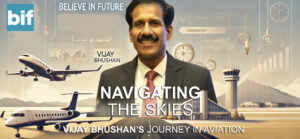

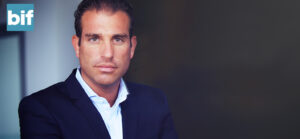


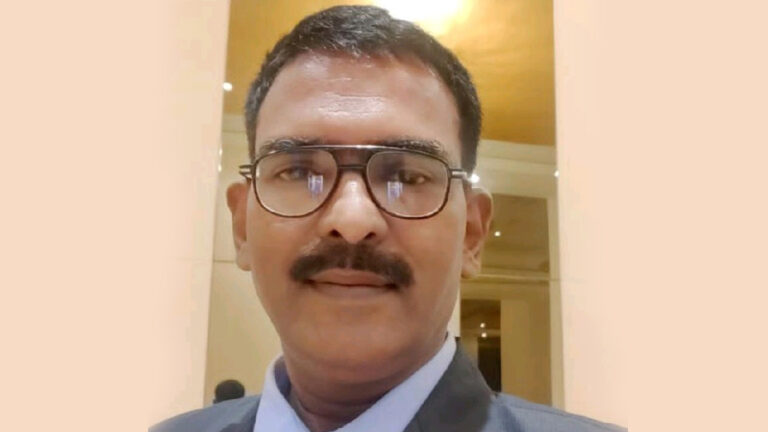

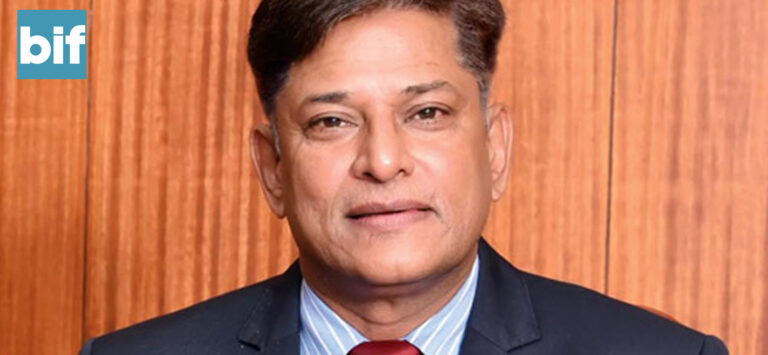

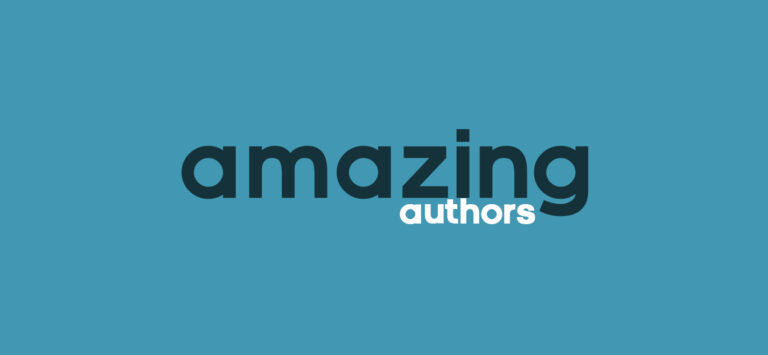
+ There are no comments
Add yours